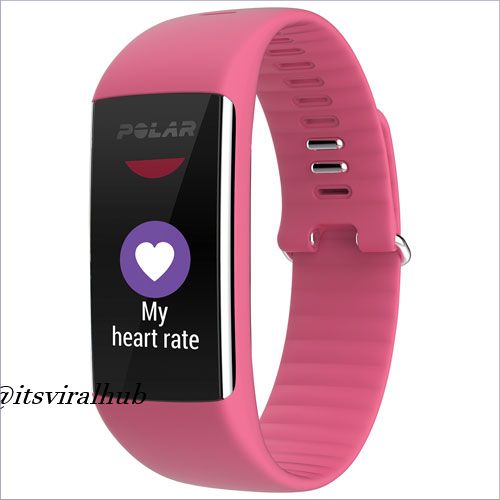Discover the latest heart rate trackers that allow you to track your heart rate around the clock. While this data may pique curiosity, experts are still uncertain about the health benefits it may provide. Incorporating these trackers into your wellness routine may boost your overall fitness.
Heart rate monitors are no longer meant only for athletes. Today, these devices are structured for general use, and incorporate step tracking, calorie consumption tracking, and heart rate monitoring, providing comprehensive data on physical activity and fitness.
For example, the Withings Pulse has a sensor that allows you to check your heart rate using your finger, while the Basis B1 features a wristband-integrated heart rate monitor that displays your rate anytime. The Basis also charts this data, aiding users in keeping track of their heart rate changes throughout the day or night. These features make both Withings Pulse and Basis B1 ideal for individuals looking to monitor their heart rate while leading a healthy lifestyle.
Heart Rate Trackers
Knowing your heart rate by heart rate tracker can be valuable when you work out, in light of the fact that it will enable you to know whether your activity is sufficiently extraordinary to give medical advantages, yet not all that extreme that it could cause medical issues, said Dr. James Borchers, a games pharmaceutical doctor at Ohio State University Wexner Medical Center. This sweet spot is known as the “objective zone,” which is around 60 to 80 percent of your most extreme heart rate, as indicated by the Cleveland Clinic. Best heart rate trackers [https://itsviralhub.com/3-best-fitness-tracker/]
Be that as it may, little proof monitoring your heart rate each moment, when you’re not working out, could give medical advantages to the normal individual, in spite of the fact that it may fulfill interest.
“For a run-of-the-mill individual, to screen the heart rate for the duration of the day … there’s no examination saying how that can be valuable yet,” past simply giving a number that a few clients may discover intriguing, said Clinton Brawner, a clinical exercise physiologist at Henry Ford Hospital in Detroit.
According to Dr. Ragavendra Baliga, the Associate Director of Ohio State Medical Center’s Division of Cardiovascular Medicine, it is not recommended for healthy individuals to monitor their heart rate daily. The reason is that heart rate tends to fluctuate throughout the day, with an average range of 60 to 100 beats per minute depending on physical activity.
In any case, movement trackers with heart rate screens may rouse individuals to be more dynamic, and accomplish their heart rate objectives, Baliga said.
Also, Read: Healthy Man: 10 Foods to Improve Male Health
Brawner concurred. “In the event that it draws in you, and encourages you to be all the more physically dynamic, at that point it’s the best device on the planet,” he said.

What’s more, there are a few circumstances where following your heart rate after some time might be helpful:
If you have initiated a workout program, a decrease in your resting heart rate is an indication that your fitness is improving, according to Brawner. As per Brawner, measurable changes in resting heart rate become evident after four to six weeks of following an exercise routine.
If you are learning to use push notification techniques, using a heart rate monitor can help you determine if your tactics, such as deep breathing, are effective in lowering your heart rate, according to Brawner. This measure can help enhance your performance and be useful for fitness training.
Following heart rate alongside action may tell clients which of their day-by-day exercises consider working out, Borchers said.
Individuals with heart issues can screen their heart rate to know whether their heart rate is identified with specific manifestations, (for example, dazedness), Brawner said.
Brawner noticed that heart rate measures are exceptionally individual, and ought not to be thought about between individuals. So on the off chance that you discover your resting heart rate is 80 pulsates every moment, and your companion is 70, that doesn’t really mean yours is great or awful, Brawner said.
To estimate the maximum heart rate, some methods use a common formula of subtracting your age from 220. However, since heart rate is highly individualistic, such approaches only provide rough estimates, as per Brawner. To accurately measure the maximum heart rate, it is best to conduct the evaluation in a lab.
Borchers suggested that individuals talk with their specialist about how to utilize their resting heart rate to compute their objective zone (which should be possible by utilizing a measure known as “heart rate save”).
A few people will not have to gauge their heart rate to realize that they are practicing in their objective zone: They can basically pass by how they feel.
“During exercise, a person’s heart rate indicates moderate intensity, even if they perceive it as moderate,” explained Brandon Alderman, a Rutgers University exercise science professor, in a recent interview with LiveScience.
Be that as it may, for others, knowing their objective heart rate “measures it a smidgen more than ‘how would I feel,'” Borchers said.



